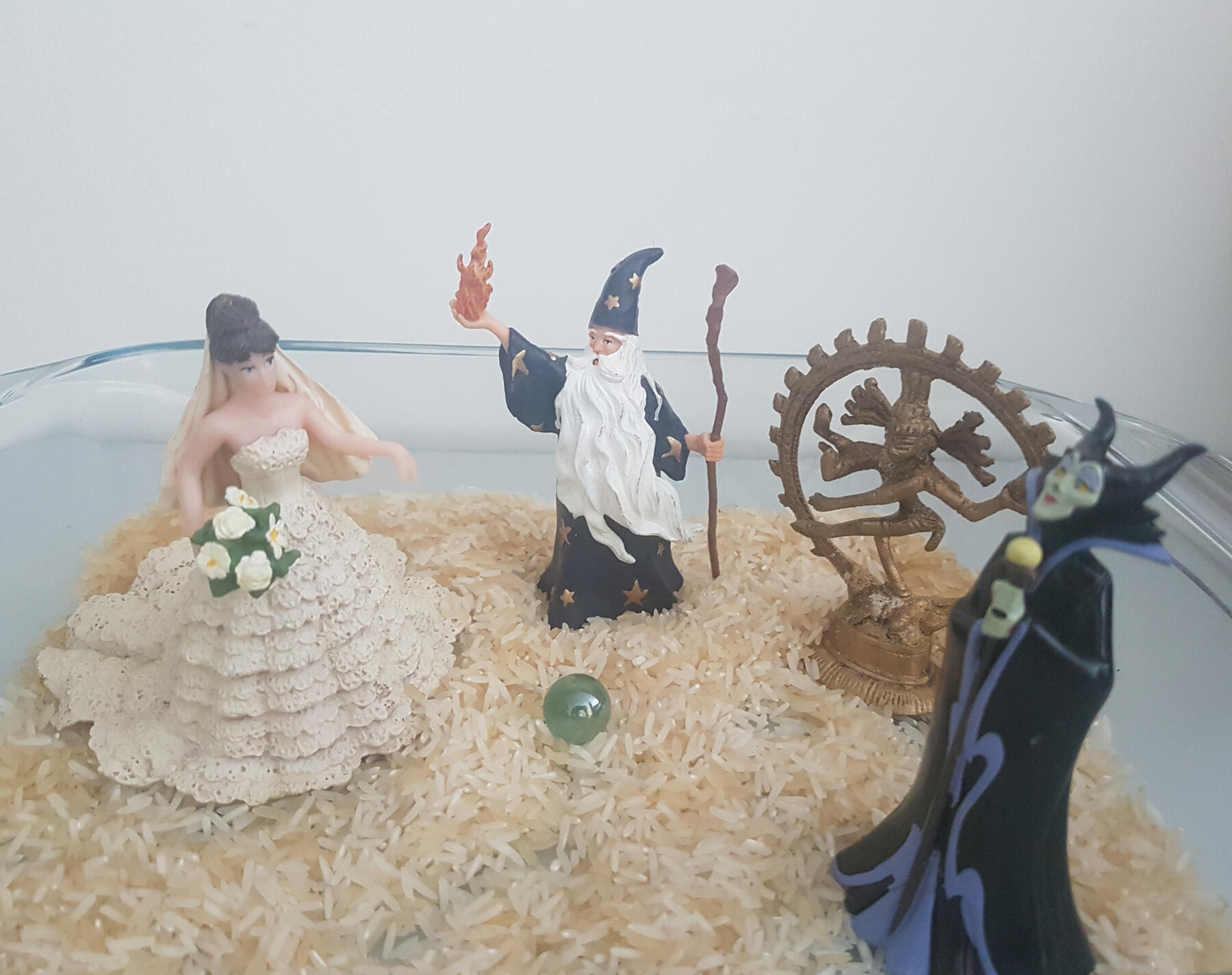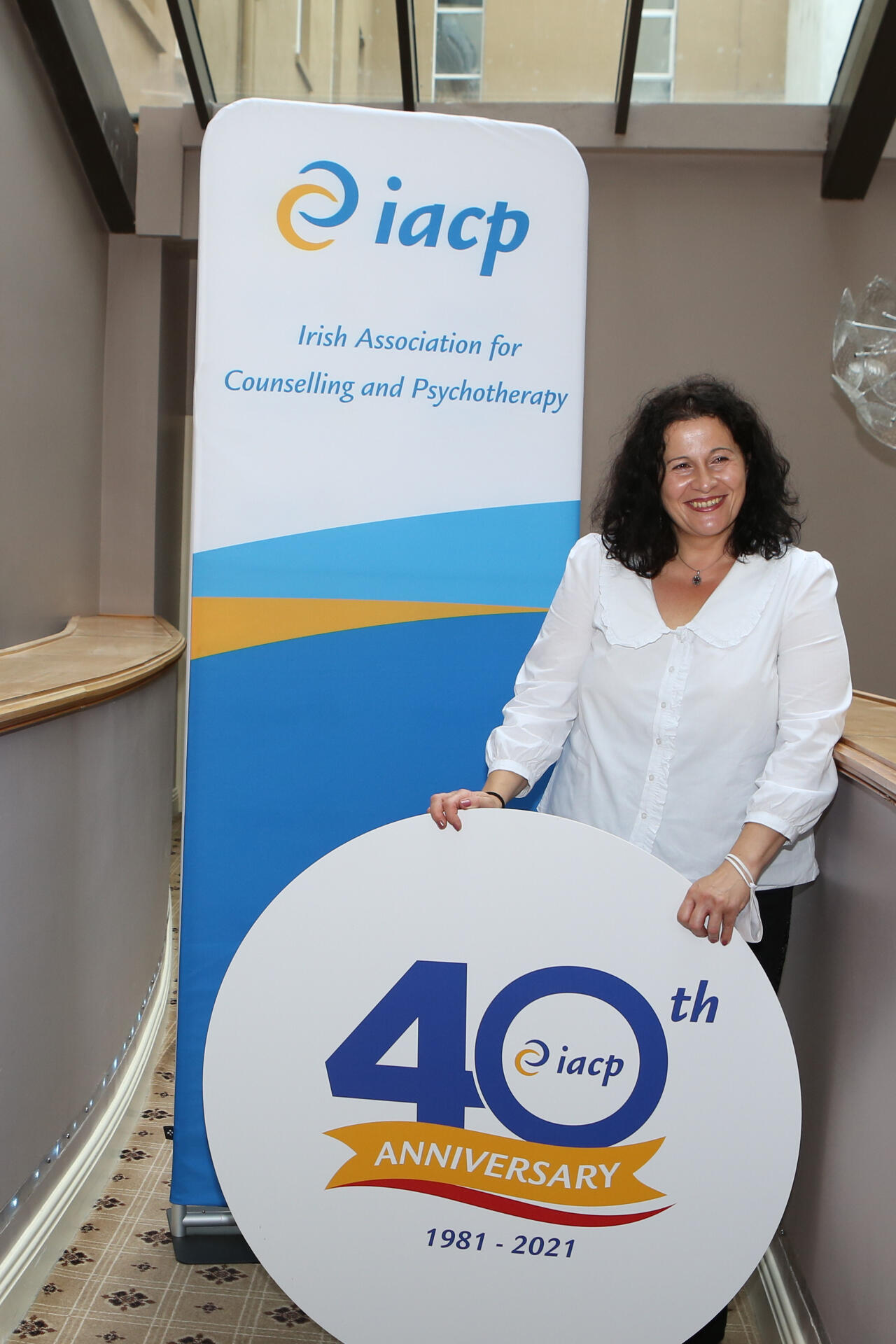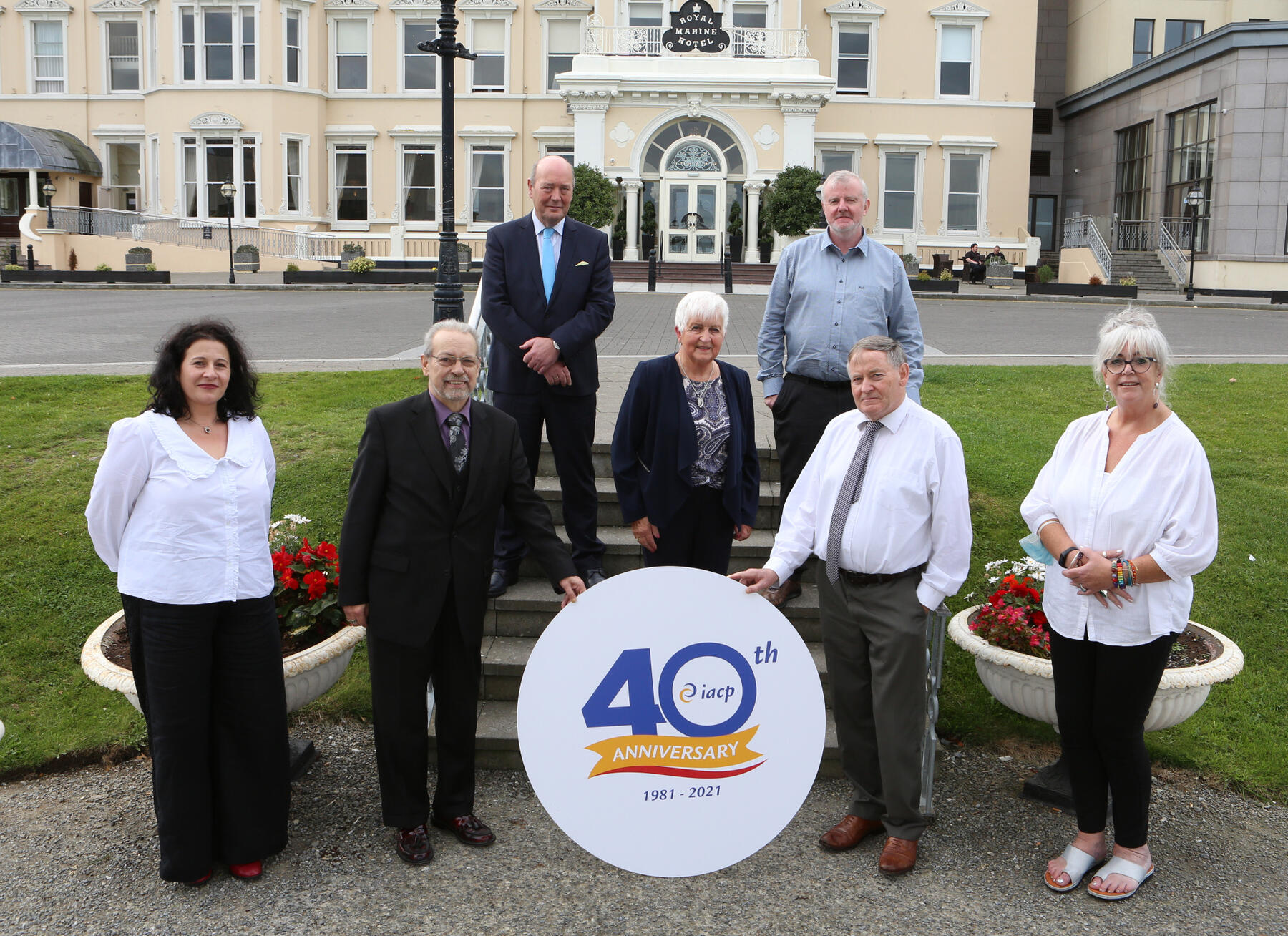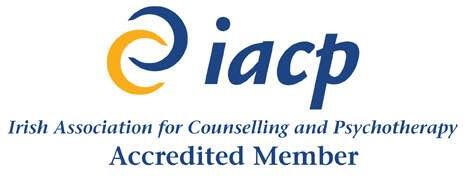METAMORPHOSIS
PSYCHOTHERAPY AND SUPERVISION
Izabela Morris MIACP
Counselling /Psychotherapy and Supervision Service in Arklow, County Wicklow

What is Psychotherapy?
Psychotherapy is a talking therapy. It is a process where two or more people are involved. Individual (or one-on-one) psychotherapy involves a person and a therapist working together towards resolving emotional distress, achieving goals desired by an individual, or a change in circumstance. Psychotherapy is also delivered to groups of people such as couples, families or random people who share a mutual issue or goal e.g. marital problems, coping with bereavement or processing whatever is going on for them.
What is Counselling?
Counselling is a talking therapy too. People often wonder about the difference between psychotherapy and counselling. There are some differences between the two, however what might be surprising is that there are many more similarities than differences. Similar techniques are used to achieve the necessary outcome: helping those in need of emotional support, problem solving, learning new skills, making sense of troubling experiences, or recovery. Both practices can be used to deal with past, present or future problems. 'The Vision for Change' (2006) - is a document published by the Department of Health which states: “In general terms, counselling is concerned with a circumscribed difficulty arising from an identified precipitating cause and is short-term in application, whereas psychotherapy is concerned with more fundamental and inherent difficulties of longer duration and with less easily identified causes”. More can be found in the link below.
The document below published in 2020, 'Sharing the Vision', elaborates further on talking therapies.
Why do people engage in therapy?
Often people engage in therapy because they were referred to it by their GP, a medical professional, social worker, employer, family member, friend, school and so on. Sometimes people decide to engage with counselling because they feel they have some 'unfinished business' or are in search of healing and moving on. Sometimes people are curious about themselves and are in need of personal growth and development. Improved relationships, clarity of thinking, healthy behaviors, beneficial beliefs, better awareness of one's potential and skills are amongst many benefits of engaging in psychotherapy and counselling. The Irish Association for Counselling and Psychotherapy (IACP) lists benefits of engaging in both practices in the link below.

FAQs
- How do I know I need to engage with psychotherapy/counselling?
If there is something bothering you or you find it difficult to cope with certain aspects of your life e.g. your job, family situation, or personal circumstance - than psychotherapy or counselling can be helpful. Sometimes people go through important life stages and transitions such as starting secondary school/college or retirement and do not feel like themselves. They might want to be back to their 'old selves' or simply make sense of what is going on for them. In addition a person might be recommended to start therapy by a professional to enhance their well-being regardless of whether the person is aware that they need help or not. In certain circumstances people enter therapy involuntarily.- Do I need to take an assessment?
Every client who seeks support goes through a needs assessment process that aims to help the client figure out their needs and goals. This assessment is not a psychological assessment and it does not diagnose in medical terms. The purpose of undertaking the assessment is to gather some information about their well-being, needs, expectations, and goals of therapy, if known. Assessment is helpful while evaluating outcomes of therapy - it might be very clear how much have been achieved and what else needs to be worked on. Clients might also be advised to request support outside of the sessions to receive help in group setting e.g. Al Anon or in areas such as how to adopt a healthy lifestyle, change their diet, start fitness classes, find friends, find employment, apply for legal aid, develop a hobby and change their career.- What does a session look like and how long does it take?
An average session with an adult takes about 50-60 minutes. An average session with an adolescent takes no longer than 50 minutes. The duration of group sessions depend on the number of participants and the group contract. During the first session a statement of understanding is signed between a client and the therapist, in which confidentiality and its limit are discussed. In case of a minor - parent/s are involved in this process. An assessment of needs is conducted and some information about the client is gathered e.g. their expectations and goals, phone number, next of kin and so on. Following sessions explore client's concerns, discuss their problems, address issues and help them to find solutions.- How many sessions do I need?
The duration of the counselling/psychotherapy process depends on the individual needs of a person and the severity of their problems. It can take the form of short or long term counselling - all of which is catered to your needs. A certain client might need 5-6 sessions to receive support and move on (short-term counselling). A different client might need to stay in counselling for a year or longer (long-term counselling). The duration of the treatment is not concrete and is difficult to disclose accurately. The recommended attendance is every week or every two weeks. Usually we contract for 6 sessions, evaluate the process during the sixth session and make the decision about continuing.- How can I tell the treatment is working?
There are number of signs that indicate the psychotherapy is working. If a person's well-being is improving, their stress levels decrease because of talking to a therapist, their management with problems improves, their issues are resolved due to a change in their behavior, the relationship between them and their situation improve, their perspective improves, or they take steps outside of counselling to resolve a problem like e.g. seeking employment, mediation or taking a break. Clinical tools to measure levels of distress are used to gauge progress too.- Is psychotherapy for everybody?
It is for everybody, but not everybody might need it. Absolutely anyone can benefit from psychotherapy one way or another e.g. personal development, dealing with past issues, making future plans and commitments. However, not everyone needs psychotherapy. Some people might be better equipped to deal with stresses in life or they can rely on different supports available to them. People have different needs at different stages of their life and rely on their own levels of resilience, resources or supports. There is no universal template that can be used. It might be helpful, in case of confusion, to talk to someone or make an enquiry with a psychotherapist.- How much does it cost?
There is a fixed rate for psychotherapy, however personal circumstances may alter the price e.g. unemployment or single parenthood. The fee is paid at the end of each session, or before if the sessions are conducted online.Please have a look at my blog to find out more information about diverse topics that may be a part of your concerns.
Supervision/Reflective Conversations

What is supervision?
Supervision is a learning experience and often referred to as REFLECTIVE CONVERSATIONS. More experienced members of the profession create a non-judgemental, supportive and safe space, whereas less experienced members can discus and reflect on their work. It is also a space where equally experienced members of the profession meet to converse, seek and give guidance. Supervision provides a common ground where professionals can examine dilemmas and different points of view in a manner that is respectful, nurturing, practical and confidential.History
Many authors of books on supervision agree that supervision was recognized by Freud as an essential part of psychoanalytic training and for a long time it has been associated with counselling and psychotherapy only. The word ‘supervision’ was historically linked with industrial-era management and authoritarian quality control based on the system of reward and punishment. Carroll (2014) thinks that the transformative learning experience offered by supervision emphasizes experiential learning that happens in collaborative, co-productive and often creative ways, without the need for authoritarian control. In recent times, different authors simultaneously observed that the term ‘reflective practice’ is being used synonymously with the word ‘supervision’. The same authors observed the use of technology, such as phones and the internet, in the delivery of supervision becoming a popular way of providing supervision to a person or group of people. During the Covid-19 pandemic and subsequent lockdowns, supervision was delivered only online or via phone and continued to support many working practitioners that would not be able to avail of it otherwise. Supervision is a well developed profession with a variety of models and frameworks. For example: All models and techniques aim to support a professional and meet them where they are in their professional needs. Some professionals might need education around how to deal with many parties involved with their case load, others may need to learn new techniques or ways of communicating with their clients or team members. Some practitioners may need to be linked with legal or medical professionals in a way that is professional and purposeful. Other professionals may be exposed to high levels of stress caused by their work or the client population that they work with. Moore (2016) thinks that despite different aims and objectives and operations that different professions may have, the application of the reflexive supervision could help bridge the gap between the ‘knowledge domain’ to practical and helpful interventions based on collaborative, reflective dialogs in order to make sense of experiences and implement changes to practice.Supervision across professions
Despite following diverse codes of ethics, professionals working across helping professions worldwide recognized the need for supervision/reflective conversations. It is agreed that receiving supervision/participating in reflective conversations is an essential activity to support personal and professional practitioners. A formal agreement held between helping professionals suggests supervision enhances self-care and wellbeing and prevents vicarious trauma or burnout. Hawkins and Shohet (2006) believe that regardless of the supervision model and code of ethics/conduct used, supervision helps to meet the objectives of the service, develop better leadership and support practitioners. Supervision in social work aims to provide guidance and support, exercise both professional judgment and discretion in decision making to deliver good quality services. In prisons and probation services, supervision helps to develop better partnerships and promote well-being. In pastoral supervision, critical reflection on ministering competences, self-awareness, theological understanding and Christian commitment is facilitated. In education, supervision helps supervisees to become better learners and educators. Some workplaces in healthcare provide in-house supervision for its employees. It may take the form of an external supervisor delivering group or individual supervision sessions. It may also take the form of a member of staff being trained to provide that. Some practitioners receive supervision outside of their workplace in a group, individual or peer support setting.Counselling and Psychotherapy
In counselling and psychotherapy fields, supervision is obligatory. Clinical supervision in counselling promotes ‘the wellbeing of the client and the professional development of the supervisee’ and gatekeeping of the profession (Creaner, 2014).
Supervision is regulated by certain rules and regulations. IACP accredited supervisors follow The Code of Ethics for Supervisors and the supervision guidelines for counselling and psychotherapy students, pre-accredited practitioners, accredited therapists and supervision.

Much more could be said about supervision/reflective conversations. Every supervisor/practitioner will bring their own, unique way of delivering supervision or engaging in reflections on supervisees work.I like referring to supervision as 'light keeping', instead of 'gatekeeping'.
My philosophy of supervision was inspired by the Maori quote (Carrol 2014): “Gathering the treasures of the past into the competencies of the present for wellbeing of the future”. I feel that a good quote is like a sign post – it shows the way and offers ‘clarity of purpose’. It teaches how to learn from mistakes, how to be ethically mindful and considerate of all parties involved. I was also inspired by Carroll who paraphrased Kierkegaard (2014) by saying that we live life forward and understand it backwards. This is what happens in supervision, while discussing work across different professions. Reflecting back allows planning, learning, guiding, challenging, and more, in hopes that it helps a supervisee impact their future work effectively and positively. It becomes a transformative learning experience.
Transformative learning experience is what I aim to deliver in my supervisory role. I offer a holistic and integrated approach to supervision that consist of theory, practice, creativity and spirituality. Please contact me, if would like to know more.The Lighthouse
by Liselle DavidsonMany times I sought the lighthouse
The familiar bean in the dark
Looking for the comfort
Radiating from its spark.
Today I turn that inwards
No longer I am the seeker
I am not just the lighthouse
I am the light -
And the lighthouse keeper.

Personal Growth and Development
Human growth and development starts at the moment of conception, through infancy, childhood, adulthood until death. Personal growth and development starts when a person makes a conscious decision to better themselves somehow. Why do people make decisions to better themselves? Babies and children mirror behaviors and attitudes they are surrounded by until puberty. At this point the process of discovery of 'WHO AM I' begins, and old patterns and perhaps newly developed ones are brought into the person's future. Those patterns of thinking and acting can be positive and negative. Some of them might work, some of them bring troubles. The majority of people do not want troubles - this is where the journey begins. Most people start personal development by becoming aware of something negative, unhealthy or troublesome about themselves. It could be a first hand realization, or someone/something brings their attention to it. It might be a pattern of behavior they acquired e.g. constant apologizing, procrastinating, being angry all the time and so on. It might be personality traits like shyness, grandiose or ways to responding to stressful events that they don't want/like/find beneficial (e.g. drinking, creating 'drama' that lasts for days, being critical of oneself or resentful of others). The process of personal development can be triggered by looking up to someone else/other people and trying to be like them, meeting someone inspirational, attending a talk, watching a movie, reading a book, dealing with some difficult circumstances or being diagnosed with an illness to name a few. This prompts the decision: I want to be like that! A nicer, more considerate human being for example, who doesn't react with anger to everything. After that - if the person wants to develop themselves or overcome their problems, the next steps will follow, which can take several forms for different people e.g. joining a local slimming club. However, sometimes the commitments do not last beyond the initial session/meeting. Sometimes designing a framework of change, or a plan of action is absolutely necessary, so is discovery and application of new tools and skills. The practice of those new tools and skills should last until a person forms a strong habit and change happens or... they decide - it is not the right time for me to change anything. In reality it might be difficult to engage in counselling/psychotherapy and carry on with and/or complete what was intended for them to reach the dream, especially if a person has a history of mental health problems or bad experiences of diagnosis, treatment, medication, stigma or support. During that process, motivation, encouragement and constructive feedback are essentials needed throughout. Counselling and Psychotherapy can be helpful with personal growth and development for every stage during an individual/group journey. Therapy can help to activate or learn cognitive flexibility, which is a paramount during the process of personal growth (cognitive flexibility allows to see things from different perspectives, diverse ideas of thinking, feeling, speaking and acting that help to deal with obstacles and change if desired. Cognitive flexibility ideas and solutions might spread over time to switch one's mindset from 'I can't' to 'I will try' or from 'I am worthless' to 'I am good enough'). In counselling and psychotherapy emotionally safe, non-judgmental, confidential and compassionate space is provided to foster personal growth and guidance after a setback. Personal growth and development requires stepping out of your comfort zone, having an open mind and the motivation or desire to change. It might be tough and awkward at first, but very rewarding and immensely satisfying at the same time.

Counselling/Psychotherapy and Supervision Services
Psychotherapy and Counselling services:
I work with variety of problems and conditions: Anger Management, ADD/ADHD, Autistic Spectrum, Abuse, Bereavement, Bullying, Cultural Struggles, Lack of Inclusion, Multiculturalism, Identity Problems, Disconnectedness, Disability, Divorce/Separation, Family Dynamics, Family Breakdown, Health Related Issues, Grief and Loss, Low Mood, Negative Mental Health, Anxiety, Depression, Post-Traumatic Stress Disorder, Life Transitions, Personal Development, Relationships Difficulties, Low Self Esteem, Self Harm and Suicidal Ideations, Sexuality, Stress, Spirituality, Trauma, Women's Issues and Work Related Issues. I work therapeutically with adolescents (clients aged 11 and up), adults and groups.I offer:
- Individual sessions that are either face to face, via phone or online to adults.
- Individual face to face sessions for minors.
- Group therapy sessions.
- Meditation and mindfulness classes
- Wellbeing related talks and presentations delivered to different community groups and students of secondary or third level groups. The topics of the talks can be requested e.g. resilience or introduction to mindfulness. Please look at my blog for ideas.
Supervision service:
I offer supervision/reflective conversations to variety of helping professionals: counsellors, therapists, social workers, social care workers, general and psychiatric nurses, psychologists and more.Code of Ethics
I am an accredited member of the Irish Association for Counselling and Psychotherapy - the largest organization in the country. In my profession I follow the IACP Code of Ethics that is based on four principles: Respect, Competence, Responsibility and Integrity (it can be found linked below). The Code of Ethics require me to uphold the therapeutic relationship I form with a client as a strictly professional relationship, never a exploitative relationship or a friendship. I will never attempt or accept any financial or material gain from a client except for the fee that was agreed to be paid for each session and a 'Thank you' card at the end of the treatment, if a person feels they want to give me one. I will not make any claims about abilities, affiliations or qualifications that I do not possess, and I will not provide a diagnosis of mental health or psychological well-being.
Working with minors
Working with adolescents requires a a specific approach and a specific set of procedures, both of which I adhere to. I follow the IACP Standards for Working with Under 18s (which is linked below).:
My qualifications:
-Diploma in Advanced Supervision Across Professions ICPPD
- BA Hons Integrative Counselling and Psychotherapy IICP
- Diploma in Drugs and Alcohol UL
- Diploma in Natural Therapies Studium Astropsychologii
- Certificate in Counselling Children and Adolescents IICP
- Certificate in Family Therapy IICP
- Certificate in Transcultural Counselling IAC
- Certificate in Psychology NUI Maynooth
- Certifiate in Addiction Studies NUI Maynooth
- Certificate in Counselling Skills NUI Maynooth
- Power of Awareness, Becoming a Mindfulness Teacher (Radical Compassion Institute) and Mindfulness Based Stress Reduction Certificates
My qualifications and professional membership can be verified below on the IACP website - please scroll down to my name.

Metamorphosis
I use metaphors and creativity frequently in my job. I particularly like the metaphor of metamorphosis. Many dictionaries verify that the word 'metamorphosis' comes from the Greek language and describes a process of transformation from one state to another, a change of shape or maturity. Many of us are all familiar with the life cycle of a butterfly. A caterpillar transforms through different stages to reach its most mature form of a butterfly. Other organisms morph in similar ways, like rocks: diamonds were carbon in the beginning. These processes can be compared to what might happen with a person who comes to therapy. A person who comes to therapy might bring with them ' butterflies of anxiety in their stomach' and might want those butterflies to transform into calmness and steadiness or disappear all together. Each person has potential to work on their problems and morph into a different, better version of themselves. They mature through exploring their emotions, analyzing events, and working through what needs to be worked through. Growth might be painful but it is also rewarding. There are many positive and worthwhile elements to the process. Trying to have an open mind and look outside of the box to find solutions helps. My role is to support you through the process, assist you with any concerns and celebrate each new stage that your personal journey of healing and recovery takes you to. Engaging with counselling and psychotherapy might be encouraged by ideas such as:
- There must be something wrong with me and I need someone to listen to me without judging me, someone who might help me to figure it out.
- Things are bad in general, there is some sort of crisis, I am struggling and I need to find different perspectives or solutions.
- I am stuck in a situation and I want to move forward.
- My relationships do not work and I wish to improve them.Talking to a counsellor or psychotherapist might be a challenge and not everybody is comfortable with it, however it helps and usually brings a sense of relief. The stress of sharing about the problems lifts up and clarity of thinking might come. New perspectives on things might appear and it helps to restore or introduce positivity to life. Whoever decides to avail of counselling and psychotherapy should congratulate themselves for being courageous and resilient.

About Me
My name is Izabela Garkowska Morris. I love nature, meditation, walking, reading, cultural diversity, rock music and travelling. I live in Arklow since 2003, I am 'a blow in' but I call Arklow my home.
I am a bilingual counsellor/psychotherapist and a supervisor. I am holding a BA Honors in Integrative Counselling and Psychotherapy, Diploma in Advanced Supervision Across Professions and other professional qualifications . I am an accredited member of the Irish Association for Counselling and Psychotherapy. My IACP membership is a guarantee of the high ethical and professional standards I adhere to set by the IACP which are examined on a yearly basis.


My approach to counselling and psychotherapy is integrative and holistic (integrative approach means that some theoretical frameworks can complement each other and offer more when applied together; holistic approach supports the view of the whole person, not just their psychological needs ). That allows me to draw from many different approaches, perspectives and techniques. My approach is rooted in theoretical study, clinical experience and ongoing professional development. Meditation and mindfulness have been a great interest of mine for years. My experience consists also of facilitating mental health recovery groups and interacting with a lot of people struggling with their mental health. This gives me great insight to mental health problems that might be encountered by different people, and the awareness that a “one size fits all” approach does not suit everybody. I believe that most difficult part is to admit that there is a problem and to reach out for help. Regardless the complexity of difficulties, recovery is possible and achievable. It might consist of many small steps and it takes time, perseverance and acquisition of different tools and supports. I am very humble knowing that it might be very hard for someone to combat depression or other mental health issues, or to learn how to function and live with it without the external or internal stigma surrounding it. I am also certain that despite it all, living a fulfilled life is possible. The clients I work with are adolescents and adults that come from different paths of life with differing cultural and ethnical backgrounds, beliefs, problems, experiences, needs and expectations. In my practice I create a confidential and nonjudgmental space, where a person can safely pour their heart out. I offer counselling and psychotherapy in English and Polish.
- Please refer to my blog to read more about different aspects of well-being.



Contact Me
My phone and email are linked down below. Please get in touch via phone/text at 086 226 3107, or through email at izabelamorris@gmail.com. You can also send me a message through this website. I will answer to all enquires - there is no silly or unimportant question. Please do not expect to hear back from me immediately. I am unable to answer your enquiry if I am busy or with someone else, I appreciate your understanding. I am looking forward to hearing from you.

Thank You!
Website designed by Angelina Morris: angelina8morris@gmail.com
